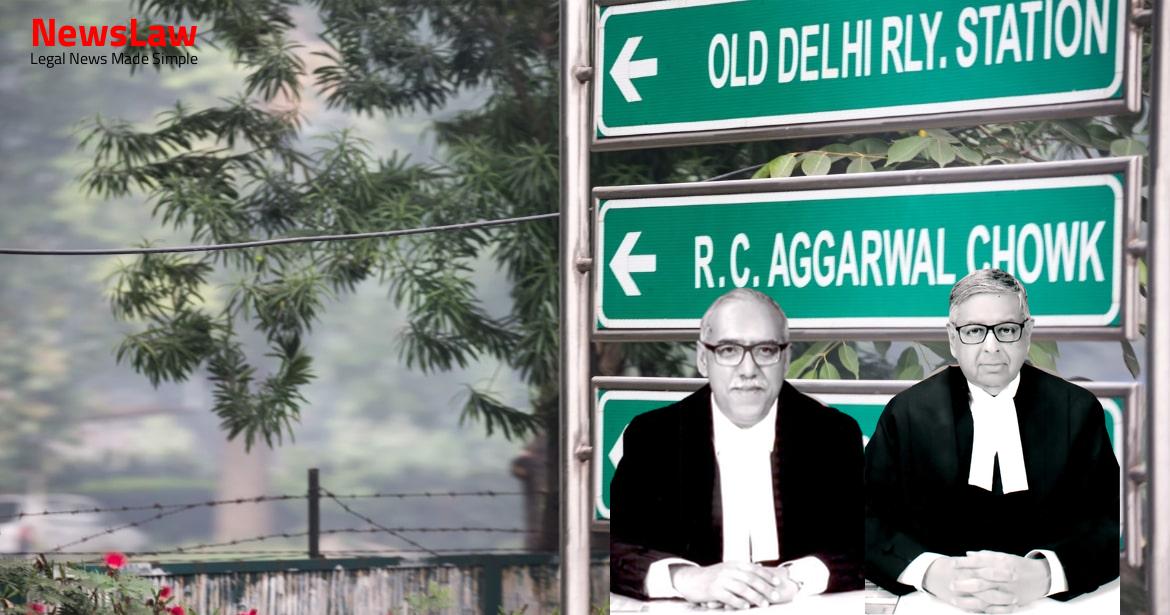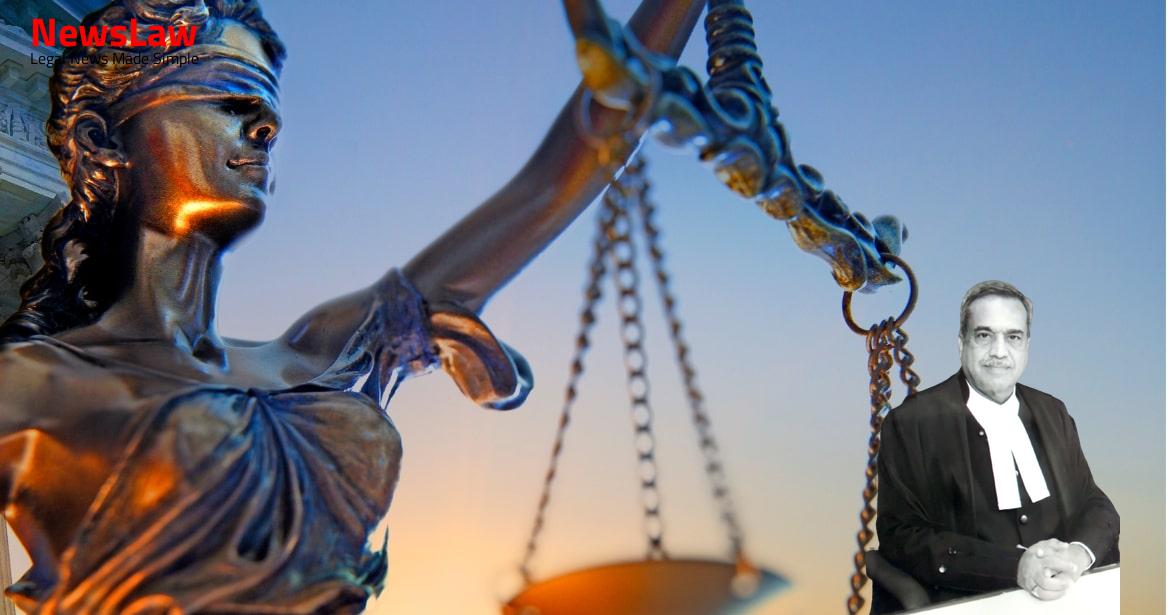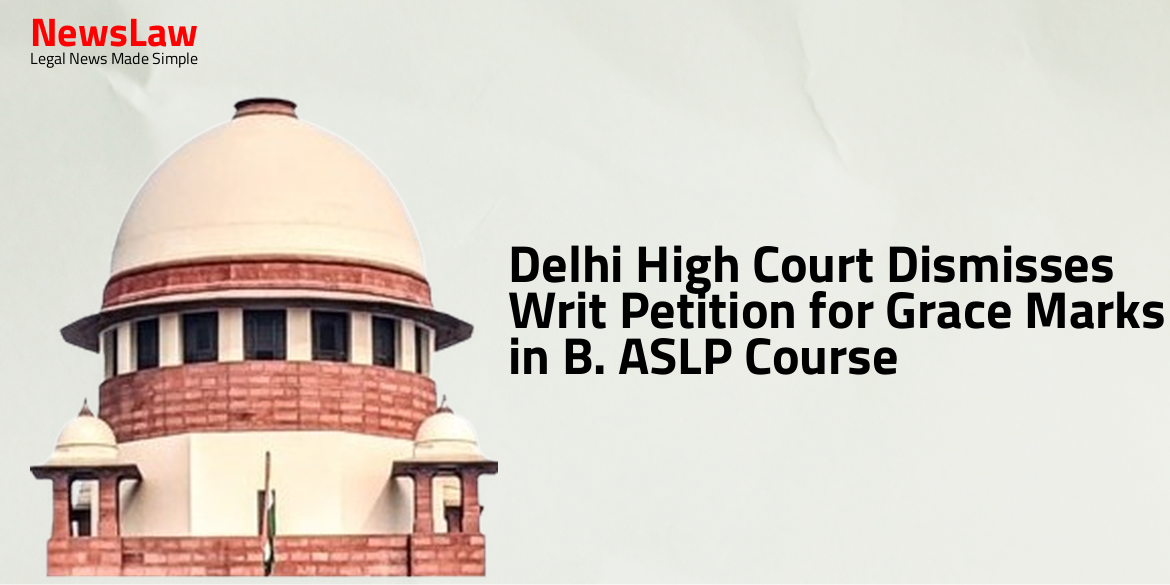The legal analysis of exemption provisions in the Electricity Duty Act delves into the intricate details of interpreting tax laws. This case summary focuses on the court’s scrutiny of exemptions for educational institutions and the application of the doctrine of Last Antecedent. Understanding the need for strict interpretation and clarity in statutory language is crucial in upholding the rule of law.
Facts
- The State of Maharashtra is aggrieved by the High Court’s decision in Writ Petition No.2961 of 2018, where the original writ petitioners (education institutions) were exempted from paying electricity duty.
- The original writ petitioners are education institutions managed by Shri Vile Parle Kelvani Mandal, a registered society and public charitable trust.
- The education institutions have electricity connections for power supply from respective power supply companies.
- Charitable education institutions were initially exempted from paying electricity duty prior to 01.09.2016.
- In 2018, electricity duty was levied on charitable institutions despite the exemption due to a change in regulations.
- The power supply companies imposed a 21% electricity duty on the institutions post 01.09.2016.
- Original writ petitioners filed a petition against the levy of electricity duty on educational charitable institutions.
- The petition was made to the High Court by the petitioners.
Also Read: Ruling on Circumstantial Evidence in Murder Case
Arguments
- The petitioner argues that the intention of the legislature cannot lead to absurdity or injustice.
- A taxing statute is to be construed in favor of the assessee, but exemptions must be strictly interpreted.
- Any ambiguity should be answered in favor of the revenue.
- If a literal interpretation leads to absurd results, the wording of the statute can be modified to align with legislative intent and avoid absurdity.
- There is a concern of discrimination and arbitrariness in the interpretation of the applicable law.
- Entities not subject to duty remained the same under both the 1958 Act and the 2016 Act.
- The language in the new Act of 2016 regarding exemption/levy of electricity duty is clear and unambiguous.
- The petitioner questions why the legislature would depart from its earlier policy regarding educational activities and argues for a favorable interpretation towards revenue.
- The doctrine of last antecedent may be applicable in the present case.
- The petitioner argues that the imposition of duty on non-commercial educational activities would be unreasonable and contrary to legislative policy.
- There is a presumption that the legislature does not make radical changes in existing law.
- The petitioner raises concerns about the potential violation of Article 14 of the Constitution if a certain interpretation is accepted.
- The petitioner highlights the exclusion of educational activities run by specified entities from duty imposition under the repealed 1958 Act.
- Arguments are made regarding the absence of exemption provisions for charitable education institutions in the 2016 Act.
- Citing judicial precedents, the petitioner requests the appeal to be allowed and the High Court’s judgment to be set aside.
- Electricity Duty Act is a taxing statute and must be strictly construed.
- Ambiguity in the Act must be resolved in favor of the assessee.
- No radical change in law between the 1958 Act and the 2016 Act regarding duty on educational institutions.
- The schools/colleges of the original writ petitioner fall within the purview of the relevant section of the Act.
- Application of the doctrine of Last Antecedent in interpreting the Act.
- The expression ‘Run by any local bodies’ does not qualify educational activities but the other activities as per the Act.
Also Read: Challenging Legal Presumptions in Negotiable Instrument Cases
Analysis
- Section 3 of the 2016 Act outlines the levying and payment of Electricity Duty to the State Government based on consumption charges or units of energy consumed.
- The duty rates are classified as per the Tariff Schedule of the Commission and vary based on the consumer’s use of premises and the source of energy.
- Certain entities specified under Section 3(2) are exempt from the imposition of Electricity Duty, such as governmental bodies, educational institutions, and licensees engaged in specific activities.
- The Maharashtra Electricity Duty Act, 1958, and the 2016 Act have provisions specifying activities exempt from the duty, with similarities in the exemptions provided.
- No duty can be imposed on entities like the State Government, Central Government, Licensees, and entities generating electricity for specific purposes as per the Acts.
- The exempt entities ensure that duty is not levied on specific activities or premises to promote certain functions and services without additional financial burden.
- The exemption notification must be interpreted strictly based on its clear and unambiguous wording.
- Section 3(2)(ia) of the Electricity Duty Act exempts certain entities from paying electricity duty, including schools, hospitals, and public utilities.
- Public sector undertakings are not exempt from paying electricity duty under the Act.
- The language of Section 3(2) is clear and unambiguous, leaving no room for exemptions for charitable educational institutions.
- The exemption provision must be interpreted strictly and literally when the language used is clear.
- Under the 2016 Act, electricity duty is not leviable on certain entities such as schools, colleges, hospitals, and public utilities run by local bodies.
- Changes in the 2016 Act have narrowed down the scope of exemptions for electricity duty.
- Charitable institutions running educational institutions are not exempted from paying electricity duty under the 2016 Act.
- Ambiguity in charging provisions should benefit the assessee.
- Purposive interpretation is not applicable when the language of the statute is clear and unambiguous.
- Exemption under Section 3(2)(vii)(a) of the 1958 Act was denied in Essar Steel India Ltd. & Anr. case as the condition of generating energy jointly with another undertaking was not met.
- Strict interpretation of eligibility criteria for exemption notifications is required, but once the criteria are satisfied, the exemption should be construed liberally.
- Taxing statutes must be interpreted in favor of the government where there is ambiguity; exemption provisions must be strictly construed.
- Exemption notifications should be applied based on their plain terms, with no room for intendment or stretching of words.
- Assessees must show that they fall within the purview of an exemption through the construction of the exemption clause.
- Ambiguity or doubt in the notification cannot be relied upon by the assessee to claim exemption.
- Exemption notifications cannot be widened at the stage of applicability, but can be construed liberally once the conditions are met.
- Strict compliance with substantive requirements for exemption is necessary; non-compliance renders exemption unavailable.
- Purposive interpretation can only be used in the presence of ambiguity in statute language or absurd results; exemption cannot be implied or gathered through necessary implications.
- Charitable education institutions are not entitled to exemption from levy/payment of electricity duty from the date the Maharashtra Electricity Duty Act, 2016 came into effect.
- The High Court’s decision to set aside the levy of electricity duty on the original writ petitioners was deemed erroneous.
- The doctrine of Last Antecedents, as argued by the Senior Advocate representing the original writ petitioners, was not applicable in this case.
Also Read: Legal Analysis Critique in High Court’s Quashing Order
Decision
- The original writ petitioners, charitable education institutions, are not exempt from paying electricity duty on consumption charges.
- The judgment and order dated 28.02.2019 passed by the High Court in W.P. No.2961 of 2018 is quashed and set aside.
- The appeal succeeds based on the above points.
Case Title: THE STATE OF MAHARASHTRA Vs. SHRI VILE PARLE KELVANI MANDAL (2022 INSC 25)
Case Number: C.A. No.-007319-007319 / 2021



